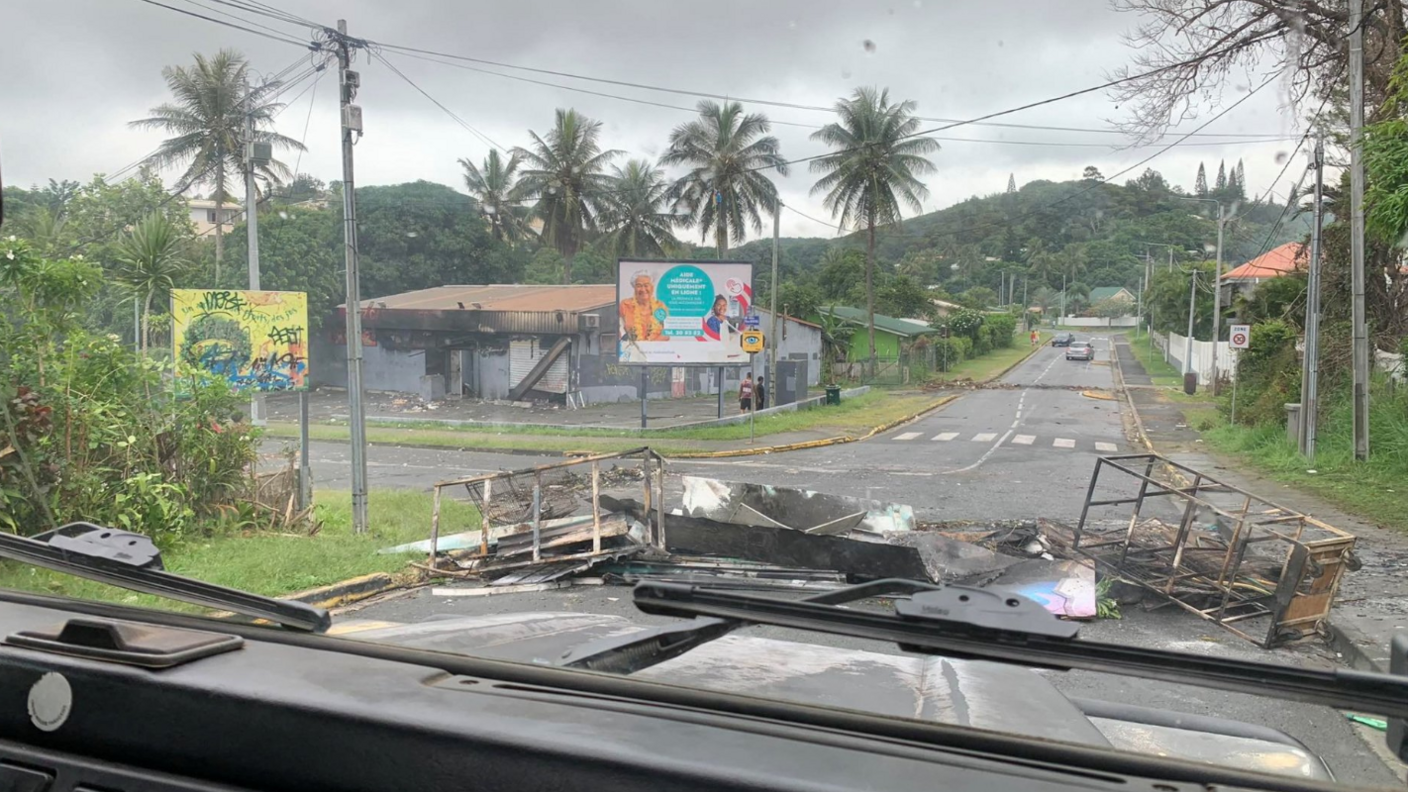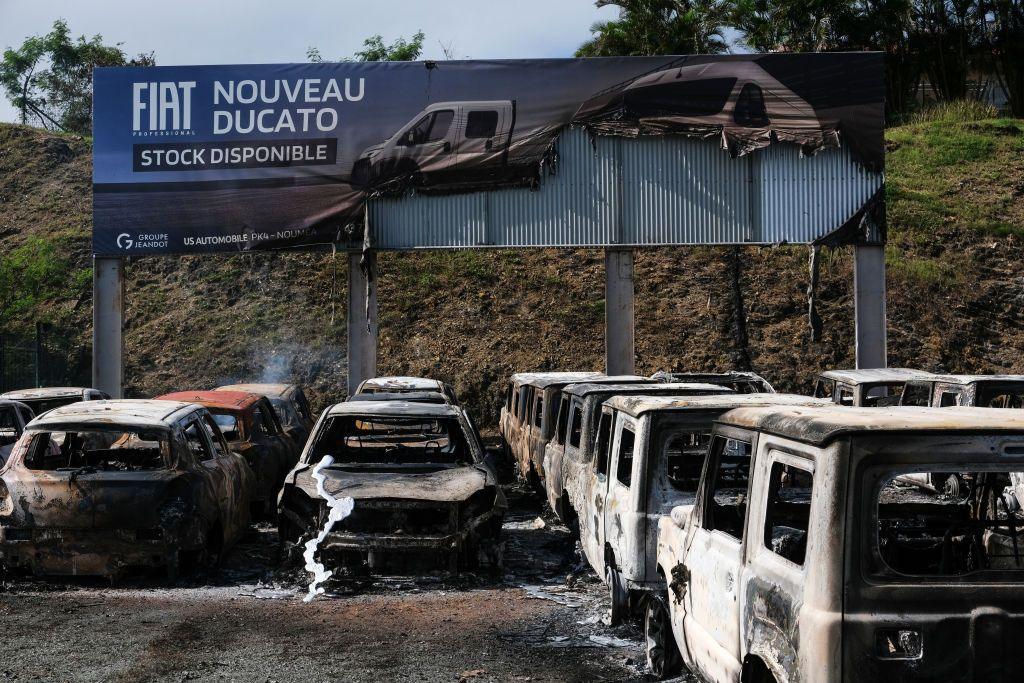Three killed in New Caledonia as riots escalate after Paris vote

The unrest is the worst New Caledonia has seen since the 1980s
- Published
At least three people have been killed in the French Pacific territory of New Caledonia as riots continue in response to controversial constitutional changes.
Protests over proposals to grant French residents who have lived in the territory for 10 years voting rights in the province first erupted into violence on Monday night.
The changes were approved by the lower house of the French parliament on Wednesday morning.
Some leaders of the indigenous Kanak people - who make up about 40% of the territory's population - fear the changes will further dilute their political influence.
France's President Emmanuel Macron has declared a state of emergency in the territory, and warned that continued violence would be met with a strong response.
People reportedly torched cars, set buildings alight and attacked police stations.
The group of islands, located between Australia and Fiji, has been a French territory since the 19th century. This is the worst unrest it has seen since the 1980s.
Earlier, Mr Macron cancelled a planned trip to Normandy to chair an emergency defence and national security meeting, his office said.
The violence started after lawmakers in Paris proposed the changes, arguing they were democratically justified.
The capital Nouméa was rocked by violent protests on Monday night, including reports of several exchanges of fire between rioters and civil defence groups.
On Tuesday, French authorities imposed a night-time curfew and banned public gatherings.
However, authorities said on Wednesday the "serious disturbances" were continuing, and there had been an attempted prison break-out.
"If we don't stop now, it will be carnage," representative of central government Louis Le Franc said earlier on Wednesday.
"I fear for New Caledonia. Dark hours lie ahead."
The French interior minister said that hundreds of people, including police officers, were injured in the unrest.

Streets in the capital are lined with the shells of burned-out cars and buildings
Following the vote, Mr Macron had issued a letter to New Caledonian representatives calling for them to condemn the violence and to call for calm.
The main pro-independence party, the Kanak and Socialist National Liberation Front (FLNKS), has supported that call, calling for protesters to cease their roadblocks.
At least 130 people have been arrested so far since the unrest kicked off on Monday, local authorities said.
New Caledonia has a population of about 300,000 people, of whom the indigenous Kanak people make up about 40%, or 112,000 people.
Under the 1998 Nouméa Accord, France agreed to give the territory more political autonomy and to limit voting in provincial and assembly elections to only those who were residents then.
More than 40,000 French citizens have moved to New Caledonia since.
The agreement allowed for three referendums on the country's future. Independence was rejected in all instances.
The first two showed slim majorities for remaining part of France. The third, in December 2021, was boycotted by pro-independence parties after the authorities refused to postpone the vote due to the Covid epidemic.
"Tonight, France is more beautiful because New Caledonia has decided to stay part of it," Mr Macron had said after the most recent vote in 2021.
New Caledonia enjoys a large degree of autonomy but depends heavily on France for matters like defence and education and still receives large subsidies from Paris.